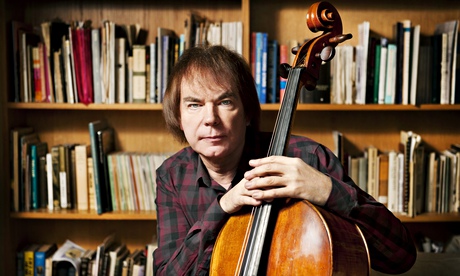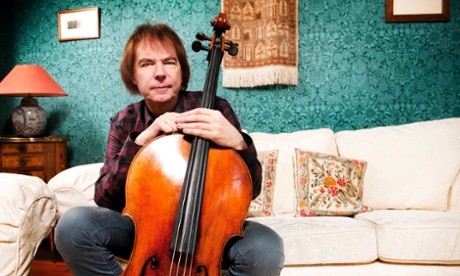Classical music competitions are rife with corruption and bribery, Julian Lloyd Webber has claimed.
The distinguished cellist and conductor, and brother of musicals impresario Andrew Lloyd Webber, told the Times that the winners of internationally esteemed music competitions were chosen by jurors selecting their own pupils.
The competitions, which can award more than £15,000 to winners, are often seen as the launching pad for the classical careers of talented young musicians.
However, Lloyd Webber said corruption was rife in Britain and abroad, singling out the Tchaikovsky competition in Moscow, held every four years and open to musicians between the ages of 16 and 30, as the most prestigious example of unscrupulous judging.
"Everyone knows it, but no one says it, because when you're in the profession, you don't," he said. "There are obvious exceptions, such as BBC Young Musician of the Year, which is not corrupt at all, but you have these competitions for violins, cello, piano and it's all about who you studied with."
He added: "I'm talking about specialised competitions. The Tchaikovsky competition in Moscow – it's either highly political or it's a fix for somebody's pupil to win it. You have a situation where a juror is friendly with another juror and there's a kind of trade-off."
Lloyd Webber warned music students that "they have to get the right teacher or there's no point in entering".
The Tchaikovsky competition was last held in 2011 and since then reforms have been introduced, including in the jury – now made up of well-known international performers and artists to ensure the competition is skewed less in favour of native musicians. In the piano category, only one non-Russian has won since 1990.
Barry Shiffman, the executive director of the Banff international string quartet competition in Canada, said: "I can understand how many people feel there are problems.".
"The importance of a transparent, nuanced systems of voting is critical, and to date there are not good standards that are utilised at all competitions. In Banff we have worked hard on a system of voting that prevents abuse and unfair punitive voting that could give unfair advantage to a competitor."
This is not the first time allegations have been levelled at classical music competitions. In a 1990 documentary on the ninth international Tchaikovsky competition, the allegations of corruption and bribery were dealt with openly on camera.
James Gibb, a British juror, told of being approached by a contestant's uncle who handed him a sealed envelope. In it, he found $1,000 (£588), which he returned. Gibb later discovered that other jurors had given the contestant piano lessons but his suggestion the pianist be disqualified was rejected.
The documentary also revealed that just before the competition, one of the contestant's fathers had donated a new Hamburg Steinway piano, worth about $88,000 (£51,781), to the Moscow Conservatory, where the competition was held.
In 2009, a group of musicians formed a group called 10,000 Musicians against Corruption in Music Competitions, which called for transparency, fairness and an end to the nepotism rife in the competitions round the world. They demanded that all rounds must be held behind a screen except for the final, they must be recorded and made public, and relations between jury members and competitors must be made public before the competition starts.









